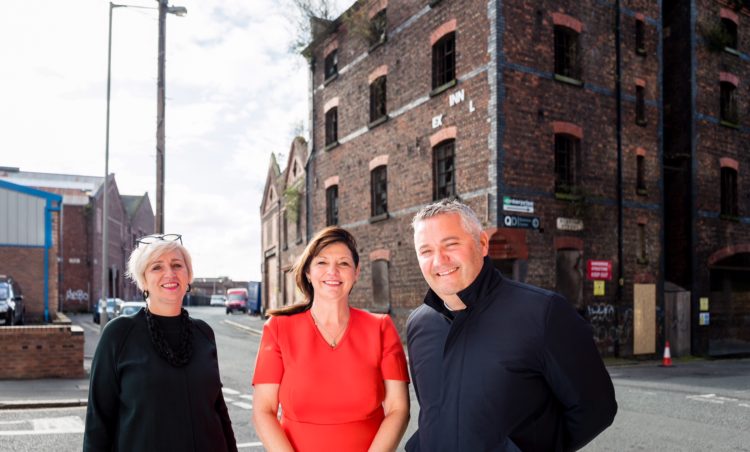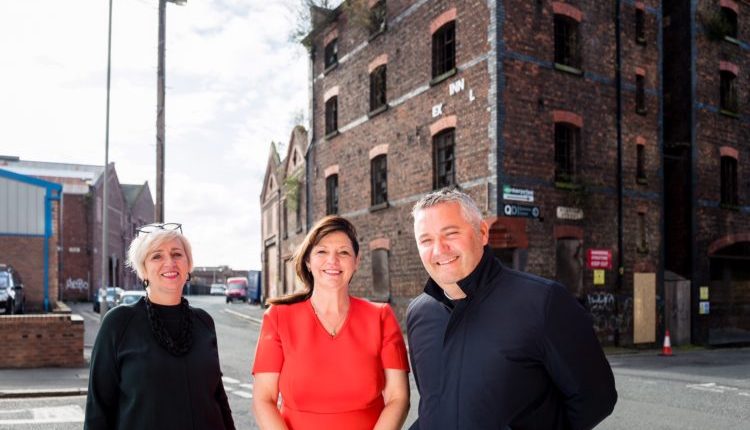Merseyside’s £1.5bn social business sector can transform city region economy, says report
Successful ventures such as Baltic Creative CIC provide sustainable models for economic growth and social value, a study by the University of Liverpool’s Heseltine Institute says. Tony McDonough reports

Liverpool city region’s social enterprise sector has the potential to address huge social problems and help drive the economy forward, a new report says.
Social enterprises and not-for-profit organisations are often viewed as being outside the economic mainstream with their value to overall growth underestimated.
But the latest study by the University of Liverpool’s Heseltine Institute for Public Policy and Practice reveals the city region’s 1,400 social organisations generate annual revenues of £1.5bn, employing tens of thousands of people.
Such revenue generation, combined with its social purpose ethos, makes the sector a hugely valuable economic asset, the report concludes.
Baltic Creative CIC, which has helped transform Liverpool’s Baltic Triangle into a thriving hub for the creative and digital sector, is held up as an example of what can be achieved. Other successful organisations include The Women’s Organisation and Liverpool Girl Geeks.
Scale and value
The institute’s Dr Alan Southern and Dr Matt Thompson, alongside social investor Helen Heap of Seebohm Hill, analysed the scale, scope and value of the social economy to the region between October 2016 and June this year.
They found the sector holds net assets worth £2.9bn and accounts for 2.2% of all registered companies.
Dr Southern said: “There is clearly huge potential for the Liverpool city region social economy to generate jobs, and to offer solutions in helping resolve the region’s many challenges, if given the right support from Government, the necessary governance capacity and the tools to help it grow.”
Social objective
The report authors define the social economy as charities, social enterprises, cooperatives and self-help initiatives that produce and distribute goods and services.

The category includes ‘anchor’ institutions such as universities and housing associations who hold a clear social purpose and are “able to spend their revenues, procure services and deliver contracts in ways that make the whole economy more social”.
Crucially, they are organisations independent of the public sector who hold a “social objective” as their primary purpose, rather than private profit.
To help support the development of a thriving social economy, the report urges policy makers to adopt what they call a “3G Approach”, which stands for Government, Governance and Growth.
Land bank
Among the recommendations for Government is the appointment of a Lead for Social Economy and the development of a Social Value Framework within the Liverpool City Region Combined Authority to support social entrepreneurs.
It also calls for a Land Bank Database “of all publicly-owned assets across the city region that community groups or social entrepreneurs can utilise in order to exercise their Community Rights to bid for or to challenge the sale of public assets”.
And the report recommends the establishment of a Social Economy Fund, to provide financial infrastructure
Growth strategy
Report co-author, Helen Heap, who co-founded and is CEO of Seebohm Hill, a Liverpool-based social investment consultancy, said: “A healthy social economy is an essential ingredient in the delivery of any economic growth strategy.
“This research provides hard data and practical suggestions on how we can support more social organisations to deliver the economic and social value they are capable of.”
Its findings were backed by Liverpool City Region Metro Mayor Steve Rotheram who attended the launch event on Thursday.

